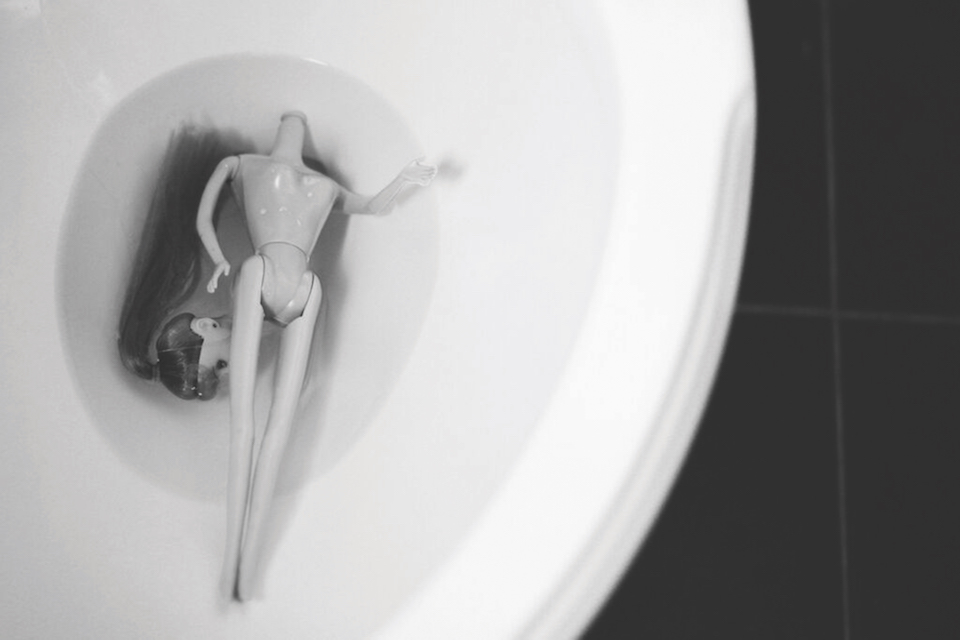Content warning: graphic discussion of living with an eating disorder, suicidal thoughts
The first time I stuck my fingers down my throat and purged was on my twentieth birthday. It was my birthday cake. It was meant as a celebration of my life, but instead, it made me hate myself enough to claw at my throat to get it out.
Mental health discourse has made progress on university campuses in recent years, and yet throughout these conversations, eating disorders have not been adequately addressed. Studies show that while eating disorders can certainly manifest in a person of any sex and at any age, they are particularly common among women in their late teens to early twenties, meaning university students are at high risk of being affected.
I’m not going to spout statistics though; a quick Google search will back up virtually any anecdote on disordered eating. Instead, I’m going to share what it’s like to live with an eating disorder.
Eating disorders are a cruel and twisted outcome of a society that values people based on unrealistic standards of beauty. We have somehow managed to turn our natural sustenance — food — into a source of addiction, fear, and both external and internal validation. On top of that, as a society we’re too afraid and too ignorant to talk about it.
Medically speaking, eating disorders are extremely complicated and it is rare for people to seek diagnosis. Frankly, disordered eating is so normalized by fad diets and weight-loss tricks that the signs of a disorder appear trivial and are easy to hide. I’m not talking about forgetting to eat every now and then, or skipping meals because you’re on a time-crunch.
I’m talking about willfully starving yourself, consciously relishing in the feeling of hunger because it will inevitably make you skinnier, and purposefully causing yourself pain as punishment for eating. This is a psychological issue more than a physical one; like other mental illnesses, it is rooted in a convoluted perception of reality and one’s body image.
For me, it began with several layers of self-hatred, that ranged from dislike of my body to feelings of worthlessness and depression. Once the seed is planted in someone’s mind that they will be worthy if, and only if, they can fit a particular mold, their life becomes fundamentally meaningless to them until they can reach that often impossible standard. It starts in the mind. It exists, primarily, in thought. Perceptions of reality, and of one’s own body, are altered to the point of non-recognition. It is looking in the mirror and not knowing whether or not you like what you see.
I had heard before that diets and counting calories could get out of control, but I didn’t believe it until it was too late. An obsession with numbers renders you hyper-aware of your body at some times, and completely disconnected at others. Society not only shapes that obsession, but also reinforces it as friends and family start complimenting your appearance when you’re thinner. It’s like a sickly sweet shot of liquor: the compliments cover the poisonous taste and momentarily distract from symptoms — like dizziness or painful constrictions of an empty stomach. The behaviours become habitual. Imagine actually craving the sensation of your fingers down your throat and finding relief in having an empty stomach. There’s nothing glamorous about convincing yourself every time that this is the last time you’ll throw up and believing it when you lie to yourself that this is only temporary.
It doesn’t end at the physical inflictions — thoughts of food are all-consuming and paralyzing. It becomes mentally impossible to engage meaningfully with people, with schoolwork, and with obligations, when your focus is constantly torn between desperate hunger and an equally desperate need to appease the sickening voice inside your head. It hurts to think how ridiculous it is, yet in a way it makes sense, given how we are constantly bombarded with images of thin, beautiful people — the pinnacle of happiness.
There is no greater loss of control than being unable to read and respond to your body’s needs, and getting so lost in your psyche that the very source of your liveliness becomes the bane of your existence. I hit rock bottom a couple of months ago when I no longer saw a future for myself and was sure if the eating disorder didn’t kill me, then I would. This is not like most addictions, where the cure is to wean yourself off. Food is a necessity of life, but I no longer knew how to eat it.
Writing this is scary. What scares me most, however, is that my friends seeking support for their eating and body-image disorders are disregarded. An eating disorder is deadly. It is a cry for help, accompanied by a stigma that we — those affected directly and indirectly — need to start working to eradicate. We need to be conscious, as a society, of the invented standards that inform our perceptions of beauty, and what that means for our day-to-day interactions. We need to talk about food, but not pass judgment on the amount that a person chooses to eat. We should voice concern to others and support them, but not pressure them when they’re not ready to seek help.
Most of all, we need to realize that having an eating disorder doesn’t need to be met with pity or censorship. If someone is strong enough to survive it, we are surely strong enough to start the conversation.
